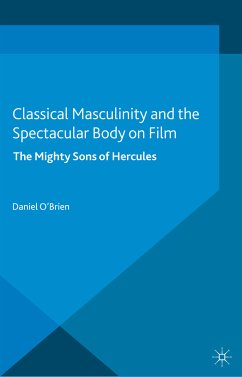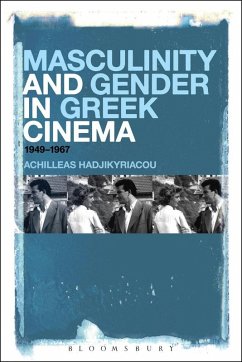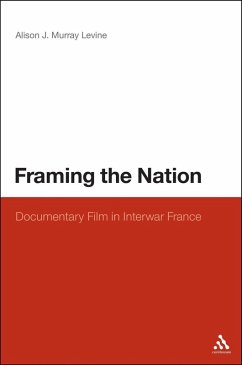
Masculinity and Gender in Greek Cinema (eBook, PDF)
1949-1967
Versandkostenfrei!
Sofort per Download lieferbar
32,95 €
inkl. MwSt.
Weitere Ausgaben:

PAYBACK Punkte
16 °P sammeln!
Between the end of the Civil War (1949) and the colonels' military coup (1967) Greece underwent tremendous political, economic, and social transformations which influenced gender identities and relations. During the same period, Greece also witnessed an unparalleled bloom in cinema productions. Based on the recently established paradigm that cinema and popular culture viewed as social institutions can inform a historical study, Masculinity and Gender in Greek Cinema explores the relationship between Greek cinema and the society within which it was created and viewed. The book's double analytic...
Between the end of the Civil War (1949) and the colonels' military coup (1967) Greece underwent tremendous political, economic, and social transformations which influenced gender identities and relations. During the same period, Greece also witnessed an unparalleled bloom in cinema productions. Based on the recently established paradigm that cinema and popular culture viewed as social institutions can inform a historical study, Masculinity and Gender in Greek Cinema explores the relationship between Greek cinema and the society within which it was created and viewed. The book's double analytical perspective on cinema and masculinity advances both the study of cinema and popular culture as historical sources, and of masculinity and gender relations as valid categories of historical analysis. Cinema as a medium of representation, not only managed to reflect on these issues, it also provided a whole new field for their interpretation. This is the first study to explore the dramatic transformation of masculinity and gender roles, as represented in Greek cinema during the turbulent 1950s and 1960s.













